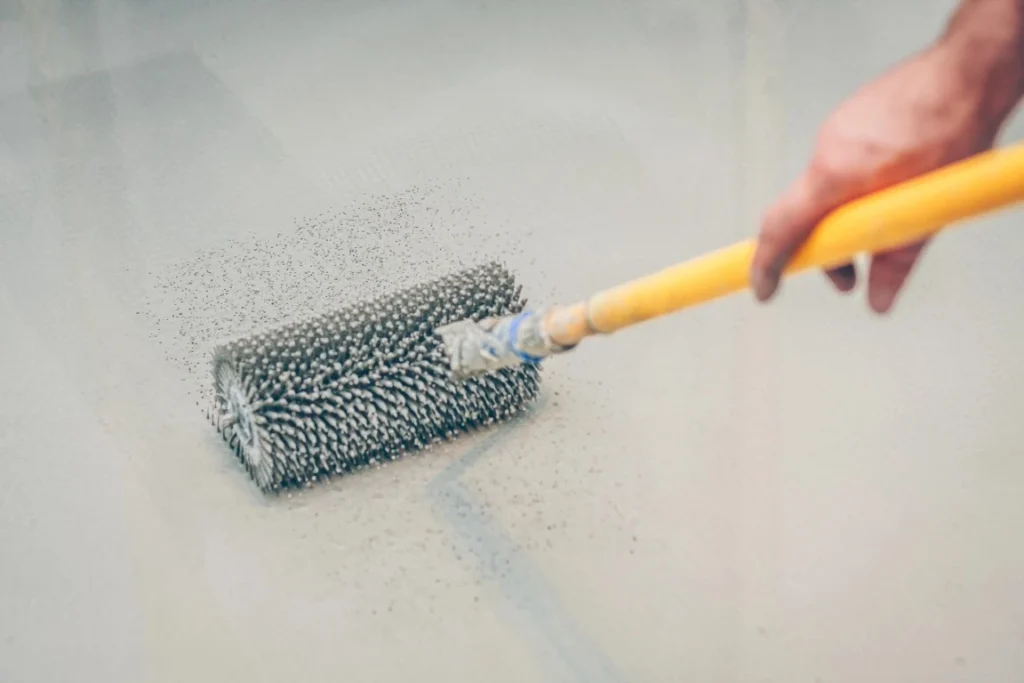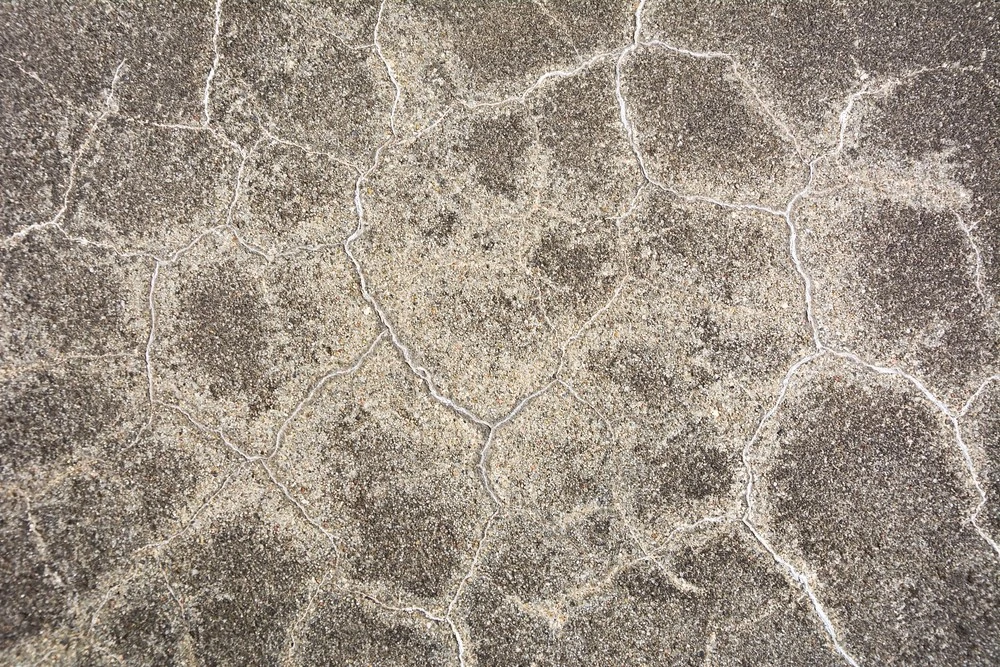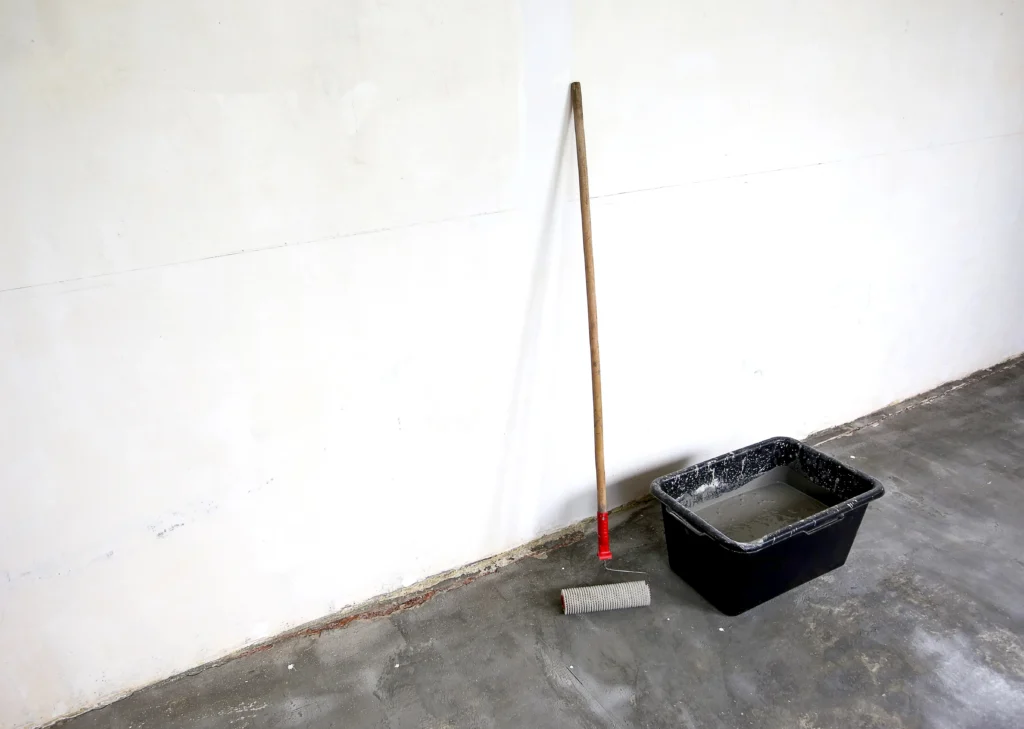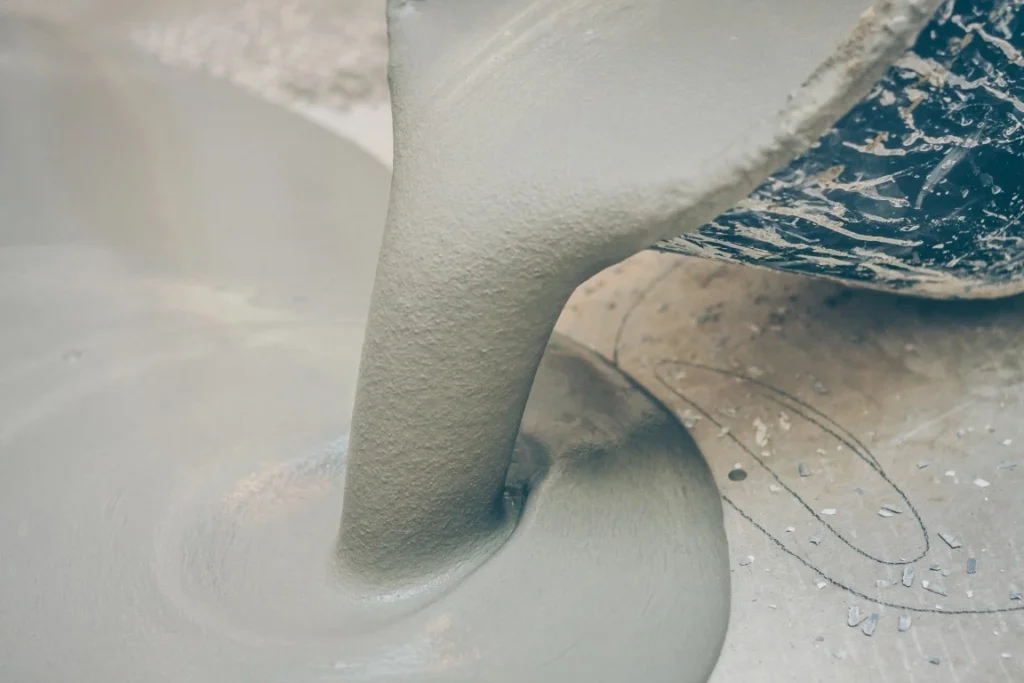
If the floors in your garage are beginning to look a little dingy, you may be considering a few different restoration options. Some homeowners may consider painting the floors, while others will purchase patching kits. However, many homeowners may decide that a DIY garage floor coating is the best way to restore their floors.
While these kits offer a quick alternative to professional coating treatments, they may not be the easy solution you want. They can be far more difficult to use than you realize and may not deliver the results you’re hoping for. If you’ve considered purchasing a DIY garage floor coating kit, keep reading to learn more about why it may be a bigger hassle than it’s worth.
Why You May Consider a DIY Garage Floor Coating
One of the biggest selling points of a DIY garage floor coating kit is easy access. All it takes to begin this project is a quick trip to the hardware store. Once purchased, there isn’t much standing between you and a freshly coated garage floor. But this ease of access isn’t the only selling point for these DIY kits.
Unlike other options on the market, a DIY garage floor coating kit is also one of the best ways to protect your floors. Options like garage floor paint may restore the appearance of your floors, but it won’t protect them from future damage. If you’re trying to address past damage, a DIY floor coating kit can help you avoid this down the road.
Finally, a DIY garage floor coating kit may be less expensive than a professional service. However, it is important to note that if you need to purchase any additional tools or rent equipment, the cost of a DIY coating can quickly rise. With all of this in mind, you may believe purchasing this kit is the best choice for your floors, but that may not be true.
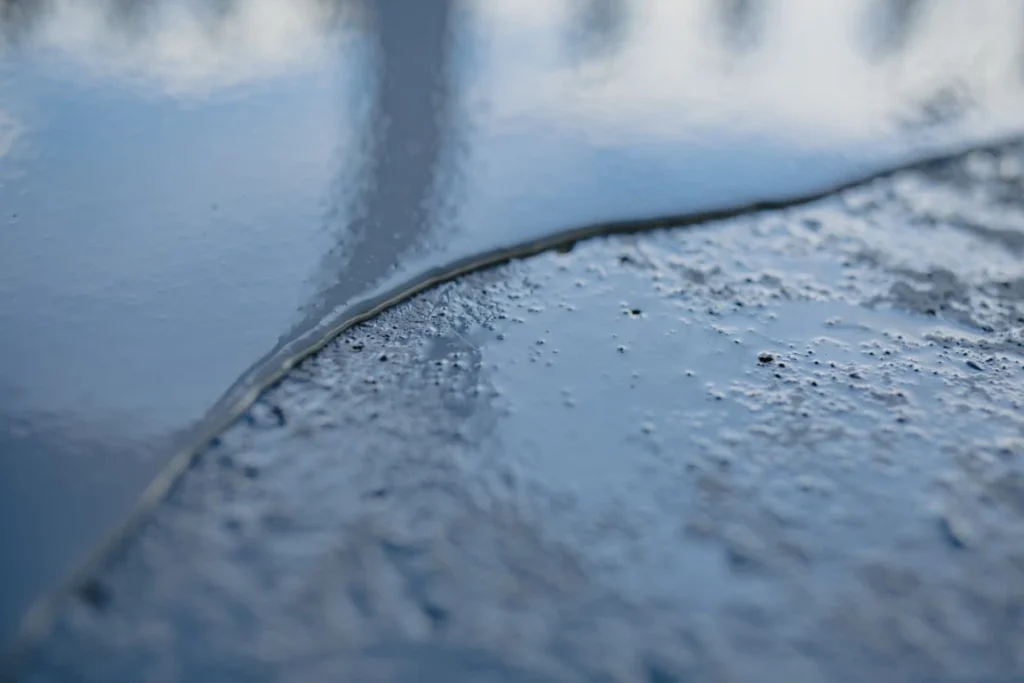
The Drawbacks of DIY Coating Kits
Although a DIY garage floor coating seems like a quick, easy way to restore the appearance and function of your concrete floors, they’re far more difficult to install than you realize. There are a few major drawbacks to investing in these floors, including:
More Complex Application Process Than Anticipated
While a DIY garage floor coating may seem like an easy project to take on, applying this coating appropriately may be more difficult than you realize. Moving too quickly through the application process may result in bubbles appearing across the coating. While this might not initially pose any problems, these bubbles will slowly rise through the coating and burst as they emerge, leading to premature peeling and chipping of the coating.
You May Not Adequately Prep Your Floors
Floor prep is an essential part of investing in a DIY garage floor coating. Your concrete floors must be appropriately patched and ground down before applying the coating, which can be difficult to do if you don’t have the appropriate tools. Failing to properly prep your floors may make it difficult for the coating to stick to your concrete floors. This improper adhesion may result in premature peeling of the coating, which can lead to costly repairs or replacement.
The Risk of VOC Exposure
When you install a DIY garage floor coating in your home, there is a significant risk of exposing yourself and your loved ones to volatile organic compounds (VOCs). As your floor coating dries, these chemicals are released into the air. If you want to avoid potential exposure, the coating needs plenty of time to off-gas. Without the proper fans and plenty of time, you risk exposing yourself to these chemicals, leading to headaches, nausea, and organ damage.

You May Face Recurring Moisture Problems
Many homeowners will consider investing in a DIY garage floor coating to address previous moisture problems. Moisture can lead to premature concrete damage. While a floor coating can help you protect your floors, they don’t prevent these problems entirely if you haven’t addressed their cause. With prolonged exposure to moisture, your coating may peel and flake, leading to the need for frequent repairs.
Why It’s Best to Schedule with the Professionals
While you may be considering investing in a DIY garage floor coating, working with a team of trusted professionals is always the best choice for your home. Floor coating professionals have the training, tools, and products to deliver high-quality results. With their knowledge, you can trust that you’ll avoid common floor coating problems.
Additionally, when you schedule with professionals, the project will be completed more quickly than if you attempted it alone. With a team of professionals installing your coating, your floors will be ready for use sooner, allowing you to restore the use of your garage. Although it may seem like a good idea, it is always in your best interest to schedule a meeting with the pros.
Which Floor Coating is Best for Your Home?
If you’re considering working with a floor coating professional, there are two common floor coating options: Polyaspartic and epoxy. Epoxy coatings are great for homeowners who want to boost the sleek, modern appearance of their homes. Another benefit of these floors is their ability to brighten up a space. However, Polyaspartic floor coatings are one of the best products on the market.
These floors are more durable than their epoxy counterparts and are quick to install. These coatings are known for their 24-hour installation, allowing you to quickly return to the space. If you’re on the fence about what coating is best for your home, reach out to a coating professional for support. Their experience can help you find the perfect coating for your aesthetic and functional wants and needs.

The Best Floor Coatings in Greenville, SC
If you want to install a floor coating in your Greenville, SC, home, turn to our team at Surface Bella for support. With years of experience and a commitment to delivering the highest quality products in the industry, we’re confident that our floor coatings are the best addition to your home. Once installed, your floors will be beautiful and strong for decades.
When you’re ready to schedule a garage floor coating installation in your home, don’t hesitate to contact our team for more information.


